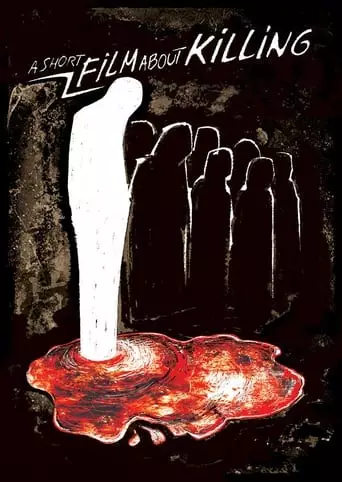
A Short Film About Killing (1988) Watch Online Free
Jacek climbs into the taxi driven by Waldemar, tells him to drive to a remote location, then brutally strangles him, seemingly without motive.
Short Film About Killing is a gripping, emotionally intense drama directed by Krzysztof Kieslowski. The film centers around the brutal murder of a taxi driver by a young man named Jacek, who kills him seemingly without reason. The movie’s narrative is divided into three parts: the murder itself, the trial, and the aftermath, focusing on the individuals involved, including Piotr, a lawyer who is tasked with defending Jacek. The film explores the legal and moral ramifications of the murder, highlighting the contrast between Jacek’s cold detachment and Piotr’s internal struggle as he faces the justice system and its complex implications.
The film is part of Kieslowski’s Decalogue series, which was inspired by the Ten Commandments, and is specifically based on the fifth commandment, “Thou shalt not kill.” The story examines the nature of killing, both personal and institutional, and the human cost of violence, as well as the ethical questions surrounding the death penalty, which was a hotly debated issue in Poland at the time.
One of the film’s central themes is the nature of violence and its dehumanizing effects. Kieslowski juxtaposes the individual act of murder with the state-sanctioned killing in the form of the death penalty. The film explores how both types of killing are presented as morally complex and intertwined with social and political contexts. The brutal murder committed by Jacek serves as a stark contrast to the calculated and impersonal execution of the state, forcing viewers to confront the ethical paradox of killing in all its forms.
Another significant theme is the exploration of the justice system. The film critiques the cold, detached nature of legal proceedings, where individuals like Jacek are reduced to mere cases, and the emotional and moral aspects of justice are sidelined. Piotr, the lawyer, embodies the struggle between professional duty and personal morality, especially as he grapples with the implications of defending someone who has committed such a heinous act.
The bleak, raw cinematography of A Short Film About Killing plays a crucial role in enhancing the themes of the film. The use of green filters and handheld cameras creates a sense of discomfort and alienation, visually mirroring the moral and emotional turmoil of the characters. This stark aesthetic choice reflects the grim reality of a society grappling with violence, guilt, and the question of justice.
Upon its release, A Short Film About Killing became a powerful political statement, especially in the context of Poland’s ongoing debate over the death penalty. The film’s portrayal of the justice system and its critique of state-sanctioned killing resonated with Polish audiences, particularly as the country was undergoing significant political and social changes during the late 1980s. Kieslowski’s unflinching examination of violence, guilt, and the moral implications of justice made the film a poignant reflection of the tensions within Polish society at the time.
The film’s critical success at international festivals, including winning the Jury Prize at Cannes, solidified Kieslowski’s reputation as one of the most important filmmakers of his generation. The film’s raw, unflinching look at the nature of violence and its moral consequences continues to be regarded as one of the most thought-provoking works in contemporary cinema.
After watching A Short Film About Killing, you may feel a sense of discomfort and unease. The film’s stark portrayal of violence and its exploration of the moral complexities surrounding killing are deeply unsettling. The emotional weight of the film lingers long after the credits roll, as it forces you to confront difficult questions about justice, morality, and the consequences of violence.
You may also feel a sense of introspection, as the film challenges your own beliefs about the nature of killing and the justice system. The moral ambiguity of the characters, particularly Jacek and Piotr, may leave you questioning the boundaries between right and wrong, and the role of the state in dispensing justice.
In summary, A Short Film About Killing is a powerful, thought-provoking film that will leave you grappling with its complex themes long after you’ve seen it. Its raw emotional intensity and unflinching critique of violence make it an unforgettable cinematic experience
